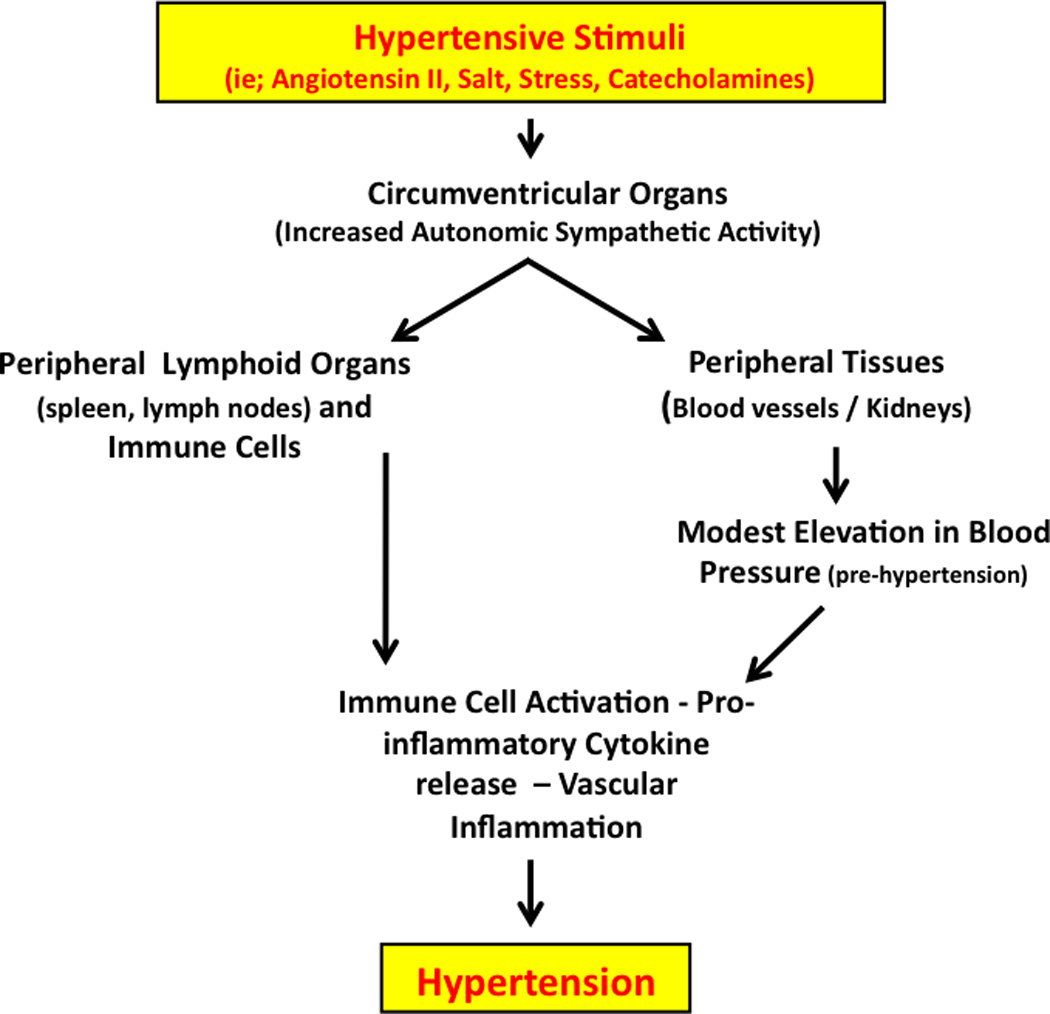Figure 2.

We propose that hypertensive stimuli such as angiotensin II, salt and chronic stress act on the CNS to increase sympathetic outflow in part via the circumventricular organs. Increased sympathetic outflow to the kidneys and vasculature leads to a modest elevation in blood pressure, which promotes the formation of unknown antigens that are processed by antigen presenting cells, leading to T cell activation. Direct autonomic innervation of lymphoid tissue and immune cells may also contribute to this pathway. Activated T cells infiltrate the vasculature and kidney, interacting with monocyte/macrophages and promote pro-inflammatory cytokine release, endothelial dysfunction, further vasoconstriction, salt /water retention and ultimately severe hypertension.
